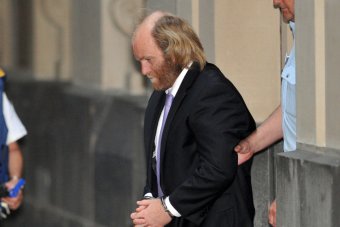A doctor who was told that Melbourne man Arthur Freeman may have been a threat to his four-year-old daughter before Freeman threw her from the West Gate Bridge stands by his decision not to report the threat to authorities.
The Victorian Coroners Court has completed an inquest into the death of Darcey Freeman, who was murdered by her father Arthur Freeman in 2009 when he threw her from Melbourne’s West Gate Bridge.
The inquest is focusing on what improvements can be made to better protect children, in the wake of Darcey’s death.
The court has heard that Darcey’s mother, Peta Barnes, told two doctors that she was concerned her ex-husband would harm her children before the girl was killed.
However neither of them told authorities.
In a statement read to the court, one of the doctors, Ian Schapkaitz, said he would not do anything differently with the benefit of hindsight.
He said Ms Barnes said she was also discussing her concerns with her attorney and that he did not think Mr Freeman posed a risk.
“I had previously seen Mr Freeman with his children when he had brought them into the medical clinic for immunisation,” Dr Schapkaitz said.
“During that consultation the children were poorly behaved yet Mr Freeman behaved with the utmost calm and ensured they were duly immunised.”
‘Reasonable belief’ to disclose
However Dr Schapkaitz should have formed a reasonable belief that the children were in danger, according to a statement tendered to the court by Beth Allen, the assistant director of Victoria’s Child Protection Unit.
In many circumstances, that would mean a doctor is bound by law to make a mandatory report to authorities.
“I believe that a reasonable GP faced with a disclosure from a mother that she feared her husband would harm her children would form a reasonable belief that the children may be at risk of physical harm,” Ms Allen said.
“The GP would then be required to consider whether the mother could reasonably protect the child or children from that harm in the circumstances.
“It’s unknown what information Dr Schapkaitz considered, if any, beyond noting that the children were in the care of their mother and that previous observations in the clinic did not indicate that the father was a threat or risk to the children.”
Ms Allen told the court that while the Royal Australian College of General Practitioners had up-to-date information and resources on its website about the mandatory reporting of child abuse, the body had never approached her unit about training for GPs.
She said there had never been a formal relationship between the two bodies but that “would be welcome in the future”.
Mandatory report system working
Ms Allen told the court that last financial year, the department received 82,101 reports concerning child abuse and neglect in Victoria.
Of those, 1,783 reports were from registered medical practitioners and 791 of those were mandatory reports.
Under Victorian law, a mandatory report to authorities must be made by health professionals if they fear a child is being physically or sexually abused, or is in imminent danger of being abused.
Reporting is not mandatory if a child is facing emotional or psychological distress alone.
When asked whether the law should be changed to widen the criteria for mandatory reporting, Ms Allen said she did not think it was necessary.
“What we want to do is try and manage a system that allows for the best possible response to children as soon as possible,” she said.
“If we were to require mandatory reporting for every emotional abuse, the child protection system would be inundated with everything from child being sad at school … through to more severe cases.”
She said the unit needed to be able to respond to children most in need.
Ms Allen also said it was not mandatory for other professionals who work with children, such as welfare workers and psychologists, to report child abuse under current legislation.
The inquest is now complete and the coroner will report his findings later in the year.


